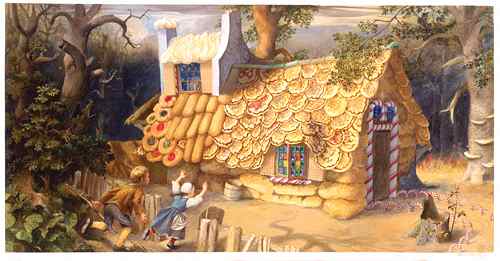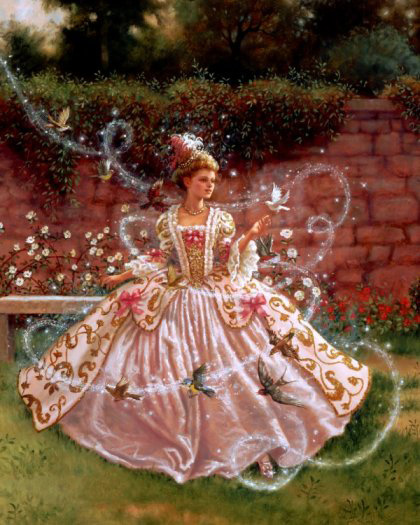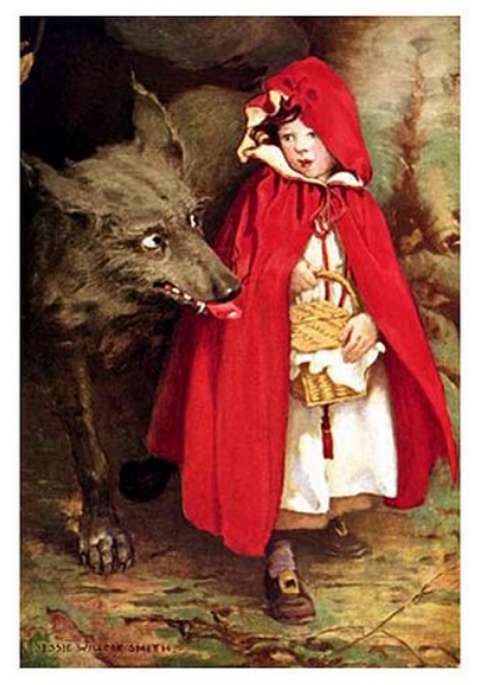
Many of Nashville Public Library's puppet shows are based on well known fairy tales (The Frog Prince, Hansel and Gretel, Cinderella).
One concern we often hear from both parents and teachers is that they hesitate to read the old classic fairy tales to their children because the stories are too frightening, and if you look around at the current crop of adult movie and TV versions of children's stories from the Brothers Grimm to Alice in Wonderland, it's easy to see why! These tales can certainly be presented in scary ways that are meant for adult eyes only. (Please, tell me the kids aren't watching them!)
Why read fairy tales to children anymore?
For one thing, there are so many beautifully illustrated versions that are appropriate for young children by Jane Ray, Ruth Sanderson, Susan Jeffers, Jerry Pinkney, Paul Galdone and many others.
Fairy tales also address our deepest fears and insecurities in a short form, told to us by people we love. These tried and true stories help us develop intuition about basic existential problems. They carry wisdom.
Parents are understandably anxious about exposing children to violent images of any kind, and if you turn on Cartoon Network, listen to popular music, or see daily advertising you know why. Verbal and physical violence seem to permeate the cultural waters in which we swim.
Often teachers can’t bear to read a class fairy tales where the stepsister’s feet are cut off, or the witch tosses a little boy in a cage and wants to eat him up. I sympathize with their protective instincts and, if it makes them truly uncomfortable, they shouldn't read them. However, it does help to recognize how fairy tales work for children.
Most children accept fairy tales not as reality, but as a story. Bruno Bettleheim, author of The Uses of Enchantment, postulates that all characters in a fairy tale - good, wicked and in between - represent aspects of ourselves. Thus, fairy tales provide a psychological road map from childhood to maturity.
Listening to a story helps a child to know that emotional fears (witches and ogres) can be defeated. Beast-like feelings of anger and fear may be roaring inside, but love and beauty can lead us back to our true selves. We may feel uncertain inside, or lost in the forest, so fairy tales teach us to listen to our hearts, use our heads and be humble. That's how we can find the path home.
Bad karma follows the self-centered and thoughtless (with the exception of Hans Christian Andersen, where even the good suffer). And fairy tale justice is not pretty - it's rough. There are serious consequences to selfish, wicked behavior. Our inner demons need to be burned up and destroyed. What a relief that little Gretel could do it!
Even if you don’t subscribe to the psychological interpretation of fairy tales, as a practical matter it is useful for children to learn that brick houses are better than straw, that not everyone who looks like Grandma is harmless, that bread crumbs do not make good trail markers and nothing will ever stay "just right." For many children, the big bad wolves of the world are all too real and the confirmation that they can be conquered is empowering.
So what is the best approach for fairy tales?
I would suggest that you play it cool when a fairy tale veers toward a dire end for the villain. Simply read the story and be open for discussion afterward, if children have questions. Most children don't see themselves in the action of the tale, and their reaction is not to cringe with empathy for the wolf who is offed with the ax.
For those of you who worry about the cultural implications of the Disney princess phenomenon, I highly recommend the book Cinderella Ate My Daughter: Dispatches from the Front Lines of the New Girlie-Girl Culture, by Peggy Orenstein. This book is funny and wise, and comes to the conclusion that an honest-to-goodness Grimm tale always offers more depth of thought than the slick, updated, highly-marketed version.
I've heard it said that the wisdom of the human race is contained in our stories. Folktales that have been passed down for thousands of years have survived for a reason. They speak to the heart of what it means to be human.
Nursery tales can be read to a child from day one. Fairy tales are appropriate for preschoolers (if they aren't too wordy) through middle schoolers (who love spooky ones!). Browse a list and give fairy tales a try.
I’ll leave you with this wonderful quote from Albert Einstein.
“If you want your children to be intelligent, read them fairy tales. If you want them to be more intelligent, read them more fairy tales.”
I heartily agree! Into the woods…







